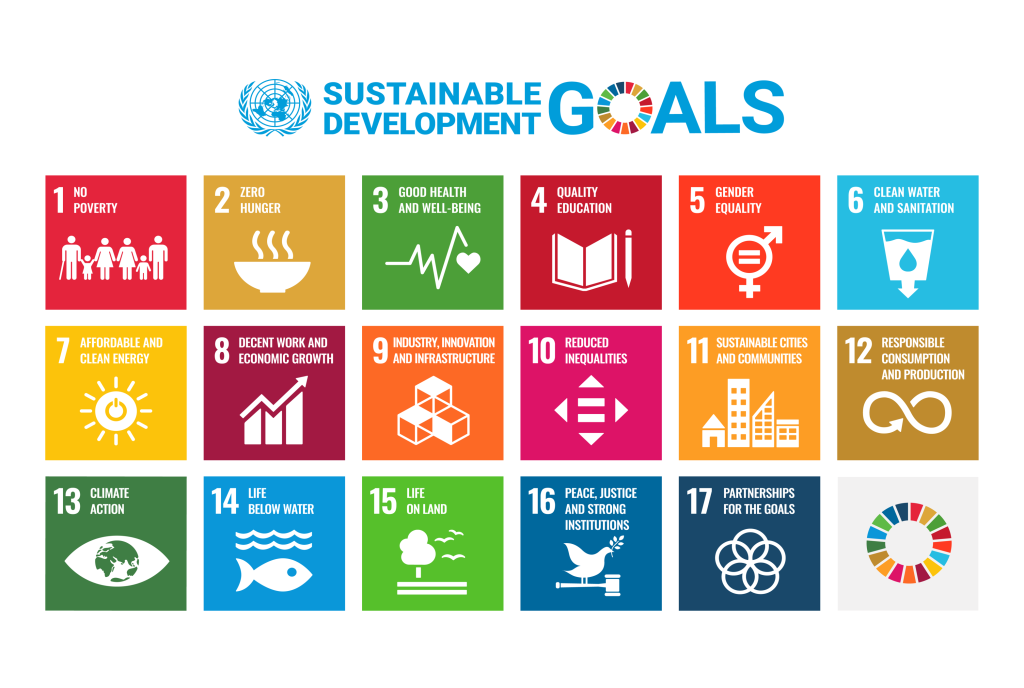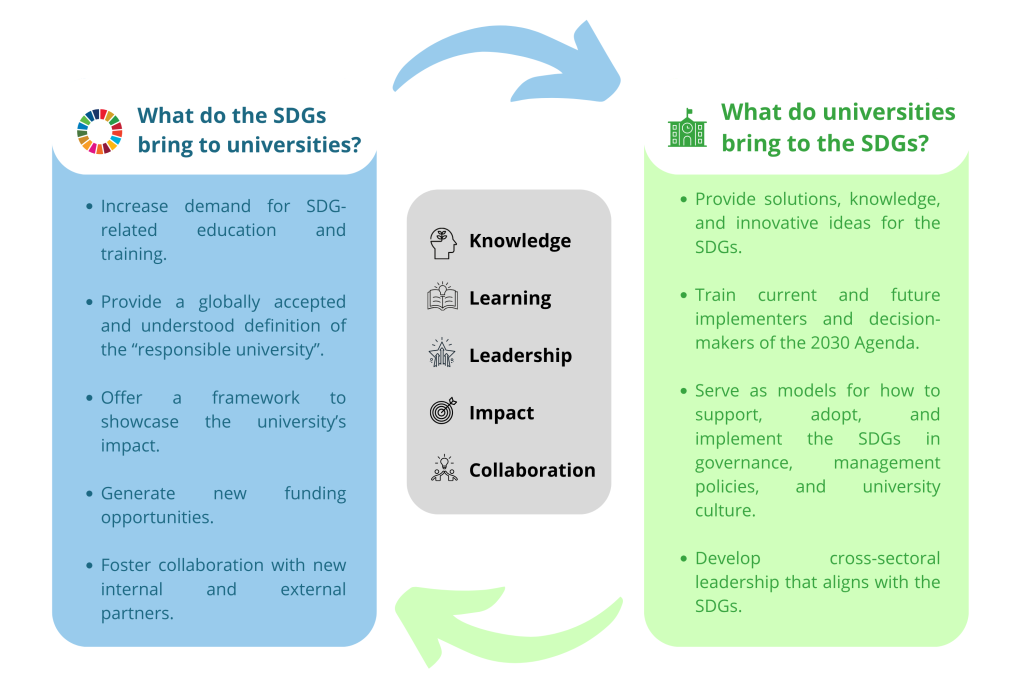Higher Education’s Role in Achieving the SDGs

The 2030 Agenda for Sustainable Development, with its 17 Sustainable Development Goals (SDGs), calls for a profound transformation of our societies. Yet, the pace and depth of change have been far from adequate. As António Guterres, Secretary-General of the United Nations, warned during the 2023 SDG Summit: “Only 15% of the goals are on track, and many are even backsliding”. While significant progress was made in the early years following the adoption of the Agenda in 2015, global crises such as the COVID-19 pandemic, geopolitical conflicts, and the rise of populist movements have led to stagnation and even regression in SDG implementation.
This sobering outlook is echoed in the Sustainable Development Report 2024, published by SDSN, which found that, for the third year in a row, the world has made no substantial progress toward the SDGs. This lack of momentum threatens not only to halt the achievements of the past decade but also to undermine the critical acceleration needed in the years ahead.
In this context, higher education institutions emerge as crucial actors in advancing the 2030 Agenda. Universities play a multifaceted role as educators, researchers, and knowledge brokers within society. Their ability to generate and disseminate knowledge, foster critical thinking, and promote civic engagement makes them uniquely positioned to contribute to sustainable development. Moreover, the university sector holds key advantages: its academic legitimacy, institutional leadership, and commitment to pluralism. These qualities enable higher education institutions to form cross-sectoral partnerships and lead transformative initiatives.

This is precisely the spirit behind the GTSF initiative. By focusing on the training of future educators and enhancing their global competence, the initiative places higher education at the heart of SDG implementation. Through virtual exchange and intercultural collaboration, GTSF empowers education students with the knowledge, skills, and perspectives needed to teach for sustainability in a globally interconnected world. In doing so, the project not only addresses SDG 4 (Quality Education) but also fosters broader engagement with the 2030 Agenda, helping to build a new generation of teachers equipped to drive sustainable change.
Concrete examples of this commitment can already be seen in several pioneering initiatives led by Spanish universities. One such example is the collaboration between the University of the Basque Country (UPV/EHU) and the City Council of Vitoria-Gasteiz in Spain through the uncitiES 2030 initiative. This project promotes the development of final degree and master’s theses aligned with the urban transformation challenges of cities. University students, faculty, and municipal professionals work together to co-create solutions addressing specific urban issues, particularly those related to achieving climate neutrality. This model of cooperation demonstrates how higher education can play a strategic role in advancing SDG 11 (Sustainable Cities and Communities) through real-world, place-based learning.
Another noteworthy example is Navegando Arquitecturas de Mujer, an innovative project from the University of Alicante. This mobile application allows users to explore architectural works designed by women through urban, rural, and cultural routes. It aims to recognise and value the contributions of women to Spain’s postmodern architectural heritage. It illustrates how their interests and practices have long aligned with the sensitivities of the SDGs. This initiative offers an engaging approach to SDG 5 (Gender Equality) and SDG 11 by bringing visibility to the cultural and social contributions of women in built environments, while promoting inclusive and sustainable forms of heritage education.
These examples illustrate how higher education can act as a powerful driver of sustainable development, both through the transformation of teaching and learning and by creating collaborative spaces that connect students, researchers, and local communities in meaningful, action-oriented ways.
